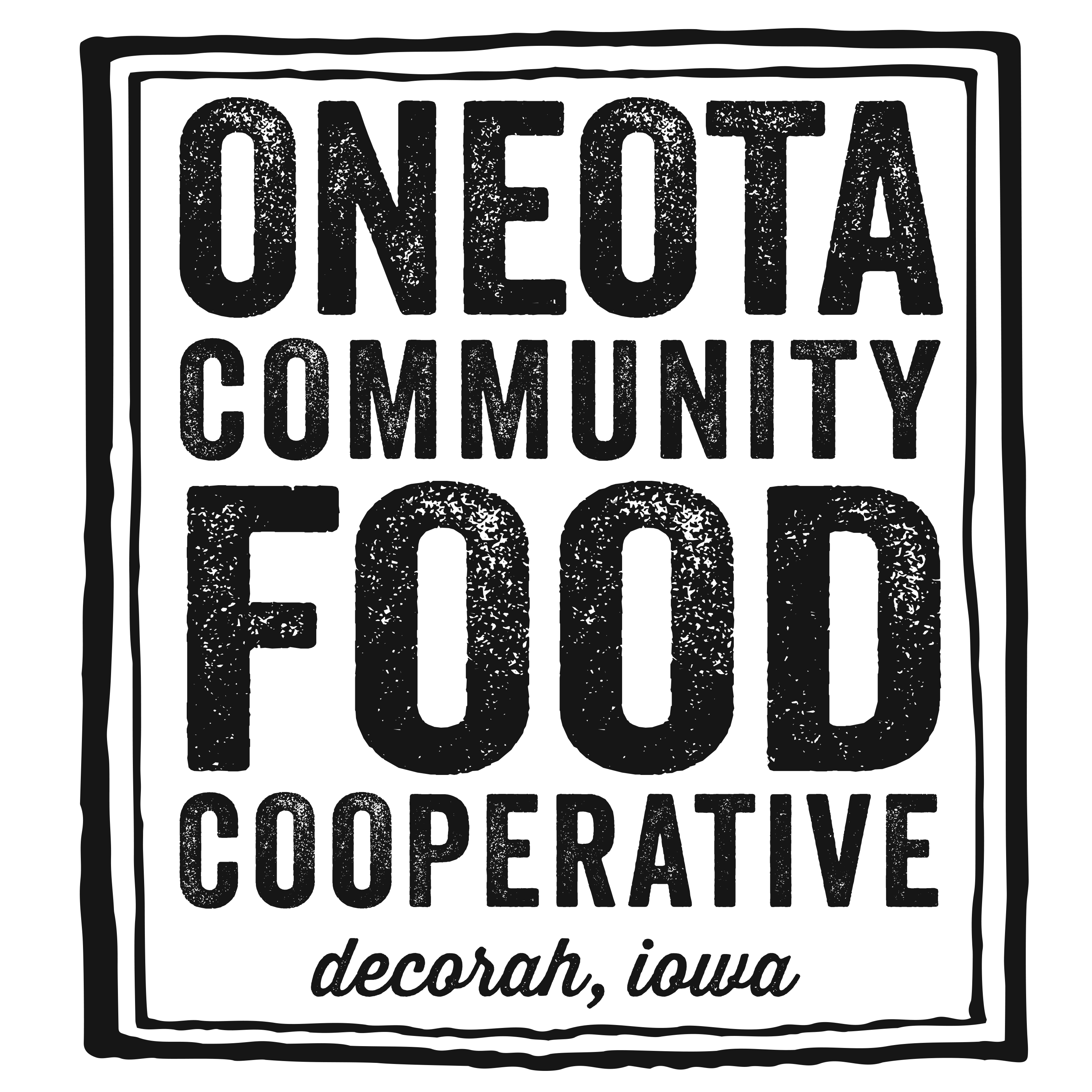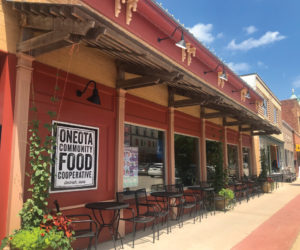By: David Lester, General Manager
It’s happening. The fastest growing area in the grocery business is in the organic market. According to Progressive Grocer Magazine, organic food sales reached $36 billion in 2014 and predicts sales will increase 12-15% annually for the next three years. This is huge growth in an industry that has historically seen minimal, single-digit annual sales growth.
The Organic Trade Association currently estimates that 51% of families are buying more organic products than a year ago and that organic food sales now represent almost 5% of total U.S. food sales. Organic is no longer a niche-market category. It is definitely quickly becoming more mainstream and customer demand will only continue to rise.
The big picture is a relatively good one because this means more people are eating organically produced foods, right? True. There are also some challenges. Many stores, especially smaller chains and single stores like ours are not getting the access to organic products as we’ve been able to in the past. There are more manufacturer “out-of-stocks” than we’ve ever seen and it doesn’t look like the situation will get better anytime soon. Demand is higher than supply. This is worrisome to smaller grocers because more control of the organic market is shifting to large corporations. With over 11,000 retail locations, Wal-Mart is one of the largest retailers of organic foods. In a June 5, 2015 article Business Insider Magazine published a report that Costco is now the largest retailer of organic food products at an estimated $4 billion in sales in 2014. Many worry that these large, corporate retailers could potentially push growers in the organic industry to move farms to unregulated regions overseas and undermine organic standards in the U.S.
Another worry is that if demand is so high, and it takes 3+ years to transition ground to certified organic standards, what could ultimately happen to organic standards? Will politics change these standards and possibly water them down? These are questions that we do get at the Co-op and we really do not know what the future holds for organics and the high standards it currently requires.
Why does organic cost more?
The truth of the matter is that organic food doesn’t always cost more. Some items, such as coffee, cereal, bread, and even hamburger, may cost the same or even less than their conventional counterparts. And, as the demand for organics continues to grow, the cost will continue to come down. When the cost is higher, consider these facts:
- Organic farmers don’t receive federal subsidies like conventional farmers do. Therefore, the price of organic food reflects the true cost of growing.
- The price of conventional food does not reflect the cost of environmental cleanups that we pay for through our tax dollars.
- Organic farming is more labor and management intensive.
- Organic farms are usually smaller than conventional farms and so do not benefit from the economies of scale that larger growers get.
Is organic food more nutritious than conventional food?
At this time, there is no definitive research that makes this claim. It is extremely difficult to conduct studies that would control the many variables that might affect nutrients, such as seeds, soil type, climate, postharvest handling, and crop variety.
However, some recently published studies in peer-reviewed journals have shown organic foods to have higher nutritional value. For example, researchers at the University of California, Davis, recently found that organic tomatoes had higher levels of phytochemicals and vitamin C than conventional tomatoes.
Does organic food taste better?
Taste is definitely an individual matter, but hundreds of gourmet chefs across the nation are choosing organic food to prepare because they believe it has superior taste and quality.
Source: organic.org http://www.organic.org/home/faq)
An increasing number of consumers are also of the opinion that organic food tastes better. Because organic food is grown in well-balanced soil, it makes sense that these healthy plants have a great taste. Try organic food for yourself and see what you think!
The competition in our own market has become a lot more aggressive in the past year. Conventional grocers who have historically carried a large percentage of frozen, processed and packaged items are meeting the customer demand for fresher, whole foods and allocating more shelf space for these items. And, because these stores are a part of a larger regional/national chain network, and due to economies of scale, they often get better pricing than your typical single store, like most Co-ops.
However, Co-ops have many advantages over these larger mega-grocery chains. A few of these are:
Quality
You will find that all of our products, especially our fresh departments like produce, are of the utmost quality and freshness. We are typically selecting and ordering produce and other fresh items the day before it is shipped and we are not “locked in” to a standard order list like many larger chains. We’re selecting what’s fresh right now. Flavor and texture is everything and customers should expect the highest quality on our shelves when it comes to these fresh products.
Access to Local
Where else can you shop and pick up a bell pepper or onion that was potentially picked the day before on a farm five miles from our store? The fact that we do a lot of business (approximately 23% of total sales) with local producers and have access to some incredibly high-quality meats, cheeses, coffees and other products that simply cannot be found at other stores. We think this has value because you are getting an extremely high quality product and a local grower is getting a fair price. We do business with over 80 local producers which will total over $1.2 million in local sales this year. This is important because supporting our local growers and producers helps build our local economy faster than any other type of sale. 23% of what you’re spending at our store is staying right here and not going back to a corporate headquarters hundreds, sometimes thousands of miles away.
Knowledge/Education
Consider the food you are buying. Where did it come from? What berry has more antioxidants? Was this beef fed with any GMOs? If you asked these questions in our store you would most likely get an informed answer from almost any of our staff, or, we would find our expert on our team who could answer it for you. Every member of our staff receives our “Whole Foods Training” course soon after they are hired so that our grocery stockers, baristas and managers can answer tough questions when asked on the sales floor. As people begin transitioning to a healthier lifestyle, many want to know more about nutrition, growing practices, how to cook it and crave other information about the food and other products they are purchasing. We are your source for this information…just ask!
We are a member and mission-driven organization. Members have many ways to voice their opinions and suggestions to the Board of Directors and management of the Co-op. This, I believe, is one of the most important distinctions between our store and a privately owned store. You have a voice. We listen to your suggestions for new products and how we can improve our customer service. As a member, you can attend Board meetings and even run for the Board. The mission of our Co-op states:
As a member-owned consumer co-operative, the organizational goals of the Oneota Community Co-op originate from our commitment to the seven internationally recognized Principles of Cooperation and reflect our concern for our community.
The Oneota Community Co-op serves primarily members, customers, and the OCC staff, but also its service extends outward to the following:
- vendors and suppliers,
•the larger community of cooperatives,
•the wider regional community.
“Oneota Co-op Mission Statement
The mission of the Oneota Community Co-op is to build vibrant communities and ecosystems by providing organic, locally produced andbulk foods, as well as other products and services that are sustainable for those who consume and produce them.”
We serve our members, our community, and we seek to build and make this a healthier community by selling high-quality items that are sustainably grown. There’s a lot more behind our product selection that’s not based purely on profit or what is currently trending, but more on the fact that these products are generally better for us from farm to fork.
In this issue of the Scoop we hope you will find several articles focusing in more detail about the impact our store has on our local community. The article, “Stays Local” by our Marketing and Outreach Manager, Nate Furler delves a little deeper into how much of your purchases stay in our local economy. Staying true to our mission and serving our members will continue to be our focus. Customers can be assured that the Co-op will continue to buy the best quality products, offer a wide variety of local items and continue to offer outstanding, personal customer service.
The tide is rising, but we’re pretty skilled surfers. We’re going to ride this one out and maybe even hang ten while we’re on this wave.
Sources: Progressive Grocer Magazine, Organic Trade Association, Business Insider Magazine, Organic.org



